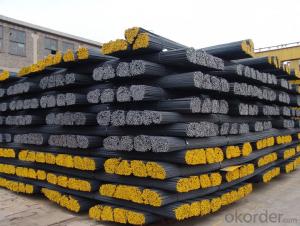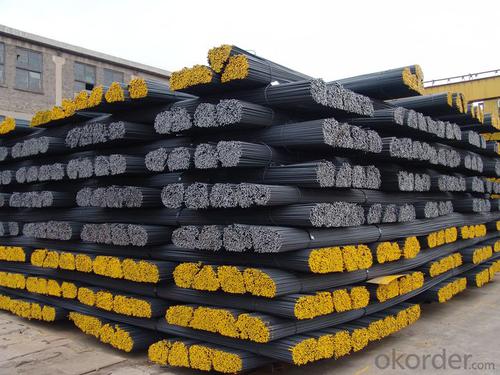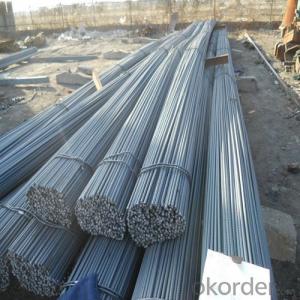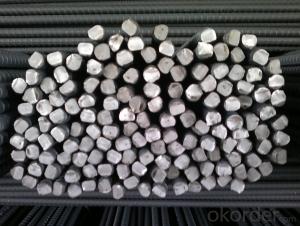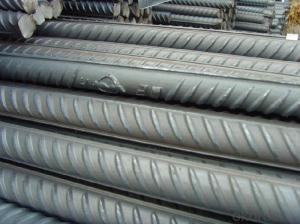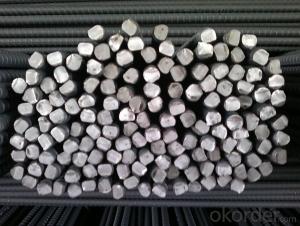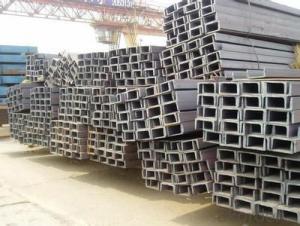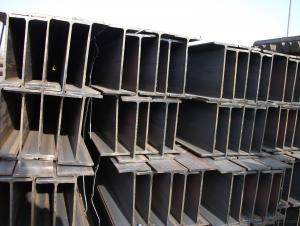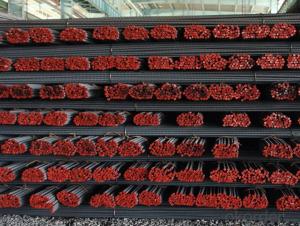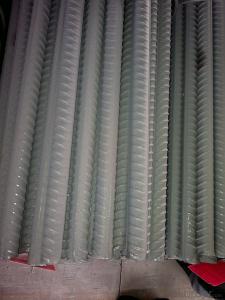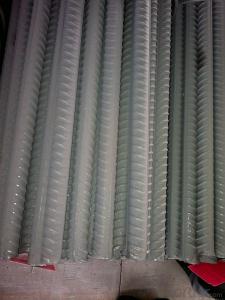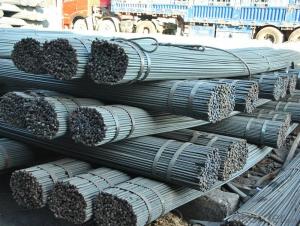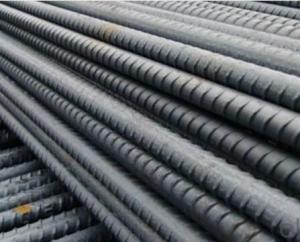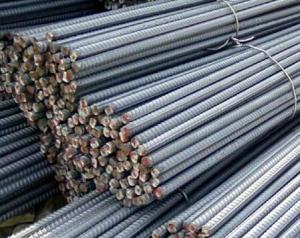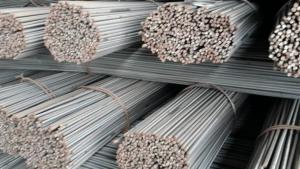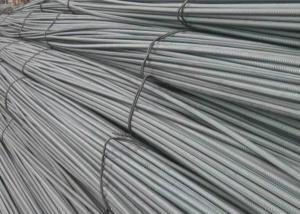Hot Rolled Steel Rebars Deformed bar JIS standard
- Loading Port:
- China Main Port
- Payment Terms:
- TT or LC
- Min Order Qty:
- 100 m.t.
- Supply Capability:
- 10000 m.t./month
OKorder Service Pledge
OKorder Financial Service
You Might Also Like
Product Description:
OKorder is offering Hot Rolled Steel Rebars Deformed bar JIS standard at great prices with worldwide shipping. Our supplier is a world-class manufacturer of steel, with our products utilized the world over. OKorder annually supplies products to African, South American and Asian markets. We provide quotations within 24 hours of receiving an inquiry and guarantee competitive prices.
Product Applications:
Hot Rolled Steel Rebars Deformed bar JIS standard are ideal for structural applications and are widely used in forest region, Mines, factories and construction sites laid of the place such as temporary transport line and light motorcycles with line..
Product Advantages:
OKorder's Hot Rolled Steel Rebars Deformed bar JIS standard are durable, strong, and wide variety of sizes.
Main Product Features:
· Premium quality
· Prompt delivery & seaworthy packing (30 days after receiving deposit)
· Can be recycled and reused
· Mill test certification
· Professional Service
· Competitive pricing
Product Specifications:
Manufacture: Hot rolled
Grade: HRB335,HRB400,HRB500
Certificates: ISO, SGS, BV, CIQ
Diameter:10mm-32mm
Packing: products are packed in coils and shipped by break bulk or containers
Deformed Steel Bar | ||
Diameter (MM) | Cross Sectional Area (MM2) | Theorectical Weight (KG/M) |
6 | 28.27 | 0.222 |
8 | 50.27 | 0.395 |
10 | 78.54 | 0.617 |
12 | 113.1 | 0.888 |
14 | 153.9 | 1.21 |
16 | 201.1 | 1.58 |
18 | 254.5 | 2 |
20 | 314.2 | 2.47 |
22 | 380.1 | 2.98 |
25 | 490.9 | 3.85 |
28 | 615.8 | 4.83 |
32 | 804.2 | 6.31 |
FAQ:
Q1: Why buy Materials & Equipment from OKorder.com?
A1: All products offered byOKorder.com are carefully selected from China's most reliable manufacturing enterprises. Through its ISO certifications, OKorder.com adheres to the highest standards and a commitment to supply chain safety and customer satisfaction.
Q2: How many tons of steel products could be loaded in containers?
A2: Usually the steel products are delivered by bulk vessel because of the large quantity and the freight. However, there are no bulk vessel enter some seaports so that we have to deliver the cargo by containers. The 6m steel product can be loaded in 20FT container, but the quantity is changed according to the size, usually from 18tons to 25tons.
Q3: How soon can we receive the product after purchase?
A3: Within three days of placing an order, we will arrange production. The normal sizes with the normal grade can be produced within one month. The specific shipping date is dependent upon international and government factors, the delivery to international main port about 45-60days.
Images:
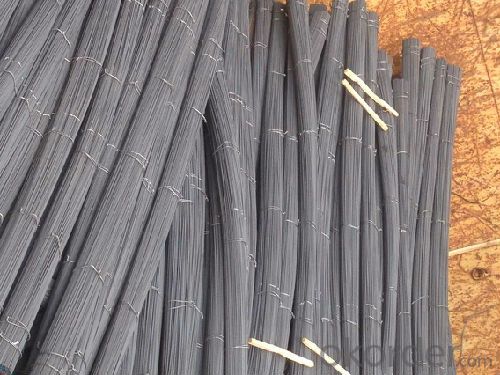
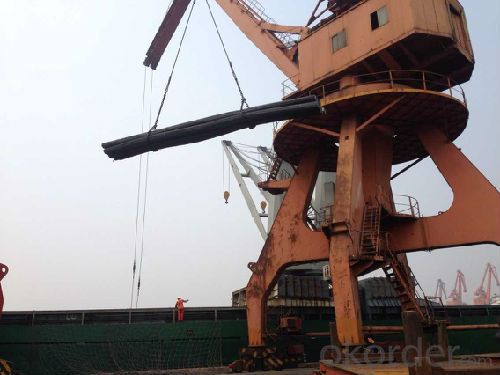
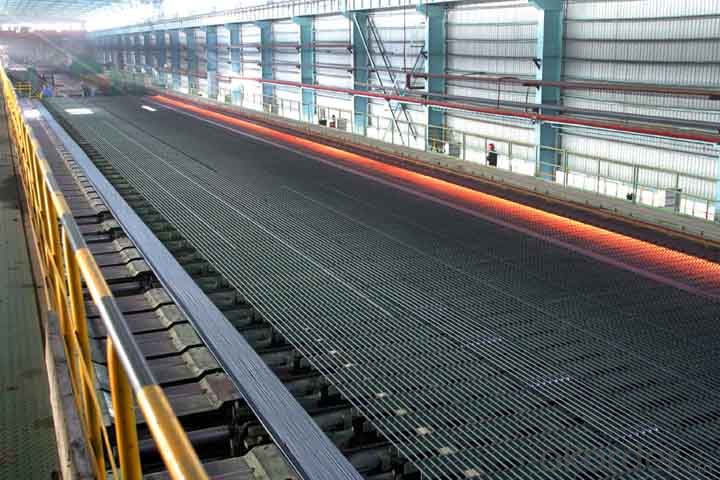
- Q: What are the different types of steel rebars available for different applications?
- There are several different types of steel rebars available for various applications. Some of the most commonly used types include: 1. Mild Steel Rebars: These are the most common type of rebars used in construction projects. They have a low carbon content and are relatively inexpensive. Mild steel rebars are suitable for general construction purposes and are used in residential buildings, bridges, and small to medium-sized structures. 2. High-strength Reinforcement Bars (HSRB): These rebars have a higher tensile strength compared to mild steel rebars. They are commonly used in high-rise buildings, large infrastructure projects, and heavy-duty structures where greater strength is required. HSRB rebars are often made from alloys such as carbon, manganese, or silicon to enhance their strength. 3. Epoxy-Coated Rebars: These rebars are coated with epoxy resin to protect them from corrosion. Epoxy-coated rebars are commonly used in marine structures, parking garages, and areas with high humidity or exposure to moisture. The epoxy coating acts as a barrier, preventing the steel from coming into contact with corrosive elements, thus extending the lifespan of the rebar. 4. Stainless Steel Rebars: Unlike mild steel rebars, stainless steel rebars contain a significant amount of chromium, which provides excellent resistance to corrosion. These rebars are often utilized in highly corrosive environments such as coastal areas, chemical plants, and wastewater treatment facilities. Stainless steel rebars are also used in structures that require a high aesthetic appeal, such as architectural buildings and monuments. 5. Galvanized Rebars: Galvanized rebars are coated with zinc to protect them from corrosion. The zinc coating acts as a sacrificial layer, corroding itself before the underlying steel is affected. These rebars are commonly used in areas with moderate corrosion risks, such as concrete structures exposed to deicing salts or in coastal regions. 6. Carbon Fiber Reinforced Polymer (CFRP) Rebars: CFRP rebars are made of carbon fibers embedded in a polymer matrix. They are lightweight, corrosion-resistant, and have high tensile strength. CFRP rebars are commonly used in retrofitting existing structures, as they provide excellent strength and durability without adding significant weight. The choice of steel rebar depends on the specific application, environmental conditions, and structural requirements. It is essential to consult with structural engineers and adhere to local building codes and standards to ensure the appropriate type of rebar is selected for each project.
- Q: How do steel rebars contribute to the ductility of reinforced concrete structures?
- Steel rebars contribute to the ductility of reinforced concrete structures by providing reinforcement and increasing tensile strength. The rebars act as a skeleton within the concrete, absorbing and distributing external forces such as tension and compression. This reinforcement prevents the concrete from cracking or failing under stress, allowing the structure to withstand greater loads and deform without collapsing, thus enhancing its overall ductility.
- Q: What is the impact of steel rebars on the overall maintenance of a building?
- Steel rebars have a significant impact on the overall maintenance of a building. These reinforcement bars provide structural strength and stability by enhancing the tensile strength of concrete. By preventing cracks and minimizing structural damage, steel rebars reduce the need for frequent repairs and maintenance. Additionally, their corrosion resistance properties enhance the longevity of the building, reducing maintenance costs and ensuring its structural integrity in the long run.
- Q: Are steel rebars suitable for use in structures with aggressive soil conditions?
- Steel rebars are generally suitable for use in structures with aggressive soil conditions. However, it is important to consider the specific characteristics of the soil and the potential impact it may have on the rebars. Aggressive soil conditions typically involve high levels of moisture, acidity, or corrosive substances. In such cases, the rebars may be at risk of corrosion, which can weaken the structural integrity of the entire construction. To mitigate the risk of corrosion, various measures can be taken. One common method is to use corrosion-resistant steel rebars, such as stainless steel or epoxy-coated rebars. These materials provide an extra layer of protection against aggressive soil conditions. Furthermore, proper design and construction techniques can also help to minimize the impact of aggressive soil conditions on the rebars. Adequate drainage systems, waterproofing measures, and protective coatings can all be implemented to prevent the soil from directly contacting the rebars. It is crucial to consult with structural engineers and experts in soil science to assess the suitability of steel rebars in structures with aggressive soil conditions. They can provide valuable insights and recommendations to ensure the longevity and safety of the structure.
- Q: Are there any environmental benefits to using steel rebars?
- Yes, there are several environmental benefits to using steel rebars. Firstly, steel is a highly recyclable material, meaning that it can be reused multiple times without losing its properties. This reduces the need for new steel production, saving energy and reducing greenhouse gas emissions associated with the manufacturing process. Additionally, steel rebars have a long lifespan and are resistant to corrosion, reducing the need for frequent replacements and further minimizing waste. Lastly, steel rebars can contribute to the strength and durability of structures, allowing for longer-lasting buildings and infrastructure, which reduces the environmental impact of constant repairs or reconstructions.
- Q: Can steel rebars be used in residential construction?
- Yes, steel rebars can be used in residential construction. Steel rebars are commonly used as reinforcement in concrete structures, including residential buildings, to enhance their strength and durability.
- Q: Are steel rebars susceptible to stress corrosion cracking?
- Yes, steel rebars are susceptible to stress corrosion cracking, especially in aggressive environments such as chloride-rich environments or where there is a combination of tensile stress and corrosive conditions.
- Q: What is the standard size of a steel rebar?
- The size of a steel rebar can vary depending on the particular application and project requirements. In construction and civil engineering, the standard sizes for steel rebars commonly used are typically 10mm, 12mm, 16mm, 20mm, 25mm, and 32mm in diameter. These sizes are widely accessible and utilized in different structural elements like beams, columns, and slabs. Furthermore, the length of a steel rebar can vary, usually ranging from 6 meters to 12 meters, depending on the project specifications. To determine the appropriate size of steel rebar for a specific construction project, it is crucial to consult the project engineer or refer to the relevant building codes and standards.
- Q: Can steel rebars be used in corrosive chemical environments?
- Steel rebars can be used in corrosive chemical environments, but their performance and durability may be compromised. Steel is susceptible to corrosion when exposed to certain chemicals, especially those that are acidic or contain chlorides. In such corrosive environments, the rebars can undergo corrosion, leading to structural damage and reduced load-bearing capacity. To mitigate the corrosion risk, various measures can be taken. One common approach is to coat the rebars with a protective layer, such as epoxy or zinc coating, to create a barrier between the steel and the corrosive environment. Additionally, using stainless steel rebars or other corrosion-resistant alloys can provide better resistance against chemical corrosion. It is crucial to consider the specific chemicals present in the environment and consult with corrosion engineers and experts to determine the appropriate measures for using steel rebars in corrosive chemical environments. Proper maintenance and regular inspections are also necessary to monitor any signs of corrosion and take prompt corrective action to ensure the structural integrity and safety of the reinforced concrete structures.
- Q: What are the different sizes of steel rebars available?
- The different sizes of steel rebars available typically range from #3 (3/8 inch diameter) to #18 (2 1/4 inch diameter), with various lengths and shapes also being offered.
Send your message to us
Hot Rolled Steel Rebars Deformed bar JIS standard
- Loading Port:
- China Main Port
- Payment Terms:
- TT or LC
- Min Order Qty:
- 100 m.t.
- Supply Capability:
- 10000 m.t./month
OKorder Service Pledge
OKorder Financial Service
Similar products
Hot products
Hot Searches
Related keywords
